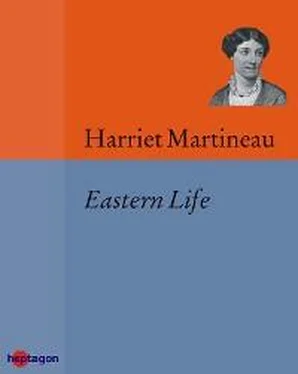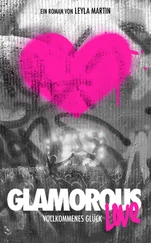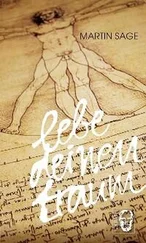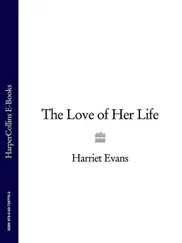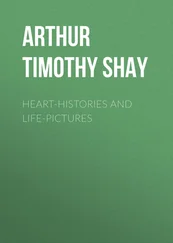Harriet Martineau - Eastern Life
Здесь есть возможность читать онлайн «Harriet Martineau - Eastern Life» — ознакомительный отрывок электронной книги совершенно бесплатно, а после прочтения отрывка купить полную версию. В некоторых случаях можно слушать аудио, скачать через торрент в формате fb2 и присутствует краткое содержание. Жанр: unrecognised, на английском языке. Описание произведения, (предисловие) а так же отзывы посетителей доступны на портале библиотеки ЛибКат.
- Название:Eastern Life
- Автор:
- Жанр:
- Год:неизвестен
- ISBN:нет данных
- Рейтинг книги:5 / 5. Голосов: 1
-
Избранное:Добавить в избранное
- Отзывы:
-
Ваша оценка:
- 100
- 1
- 2
- 3
- 4
- 5
Eastern Life: краткое содержание, описание и аннотация
Предлагаем к чтению аннотацию, описание, краткое содержание или предисловие (зависит от того, что написал сам автор книги «Eastern Life»). Если вы не нашли необходимую информацию о книге — напишите в комментариях, мы постараемся отыскать её.
Eastern Life — читать онлайн ознакомительный отрывок
Ниже представлен текст книги, разбитый по страницам. Система сохранения места последней прочитанной страницы, позволяет с удобством читать онлайн бесплатно книгу «Eastern Life», без необходимости каждый раз заново искать на чём Вы остановились. Поставьте закладку, и сможете в любой момент перейти на страницу, на которой закончили чтение.
Интервал:
Закладка:
One thing which struck me as strange in this hall of giants was a dwarfish statue, without a head. It measured two or three inches less in each limb than our middle-size, and was of course very insignificant among the Osirides. What it was, and how it came there, we could not learn.
When we looked abroad from the entrance, the view was calm and sweet. A large island is in the midst of the river, and shows a sandy beach and cultivated interior. The black, peaked hills of the opposite desert close in to the south, leaving only a narrow passage for the river. – It was nearly evening before we put off from the bank below the temple. It had been an animating and delightful day; and I found myself beginning to understand the pleasure of »temple-haunting«; a pleasure which so grew upon us, that we felt real grief when it came to an end. I, for one, had suspected beforehand that this work would soon become one of mere duty or routine: but we found, even before we left Nubia, that we were hardly satisfied to sit down to breakfast without having explored a temple.
XI. Ibreem – Dirr – Subooa – Dakkeh – Garf Hoseyn
While at breakfast the next morning (January 8th) we drew to shore under the great rock on which stands Ibreem, the station of Roman and Saracenic garrisons, in times when it was necessary to overawe Nubia, and protect the passage southwards. It was an important place during the wars of Queen Candace with the Roman occupants of Egypt and Nubia. It appears that the word Candace was probably a title, and not a proper name, – it being borne by a series of Ethiopian queens; – a curious circumstance by itself. Of the queen Candace who marched against Ibreem (Prêmnis), we are told by Strabo that she was a woman of masculine courage, and had lost an eye.
We saw from our deck some grottoes in the rock, with paintings inside; and longed to get at them: but they were so difficult of access (only by a rope) that Mr. E. went alone. They are of the time of the great Ramases and three earlier sovereigns of the same Period. The painting is still vivid; representing votive offerings. There are some very small statues in high relief at the upper end.
I could not be satisfied without mounting the cliff: and from its summit I obtained a view second only to that above Asyoot. I could now understand something of the feeling which generates songs in praise of Nubia; for many charming spots were visible from this height, – recesses of verdure, – small alluvions, where the cotton shrub was covered with its yellow blossoms, and crops of grain and pulse were springing vigorously. On the Arabian side, all looked dreary; the sandy areas between its groups of black crags being sprinkled with Sheikhs' tombs, and scarcely anything else; and the only green being on a promontory here and there jutting into the river. The fertility was mainly on the Libyan shore; and there it must once have been greater than now. Patches of coarse yellow grass within the verge of the Desert, and a shade of grey over the sand in places, seemed to tell of irrigation and drainage now disused. A solitary doum palm rose out of the sand, here and there; and this was the only object in the vast yellow expanse, till the eye rested on the amethyst mountains which bounded all to the south and west. Some of these hills advanced and some receded, so as to break the line: and their forms were as strange and capricious as their disposition. Some were like embankments: some like round tumuli: some like colossal tents. The river here was broad and sinuous; and, as far as I could see, on either hand, its course was marked by the richest verdure. The freshness and vastness, and sublime tranquillity of this scene singularly impressed me.
The chief interest about the town or fortress was in the mixture of relics, – Egyptian, Greek, Roman, Saracenic, and Turkish. The winged globe, Greek borders and columns, Roman walls, mosques, and Turkish fortifications, – all these may be seen in half an hour's walk, heaped together or scattered about. The modern dwellings appear to be, for the most part, made of rough stones, instead of mud; – the stones lying ready to the hand, I suppose, and the mud having to be brought up the rock. It is a truly desolate place now.
In the afternoon, we saw the capital: – Dirr, the capital of Nubia. – On the bank, we met the governor and his suite, with whom we exchanged salutations. We were walking so slowly, and were so ready to be spoken to, that the governor might have declared his wishes to us if he had not been shy. He preferred sending a message through our Rais, whom we met presently after; and to whom he said that he was ashamed to ask us himself, but he should be much obliged to us to give him a bottle of wine. Such was the request of the Mohammedan governor of the capital of Nubia! Our dragoman could not keep his countenance when he delivered the message. We did not see his Excellency again, and he never sent for the wine: so he did not sin against his law by our means.
Dirr reminded me, more than any other place, of the African villages which Mungo Park used to set before us. It has two noble sycamores (so-called), one of which is the finest we saw in the country. It had a deewán round it, where the old people might sit and smoke, while the young sing and dance. The governor's house is partly of burnt brick, – quite a token of grandeur here. The other houses were of mud, as usual; – clean and decent. The cemetery shows signs of care, – some low walls, ornamented at the coping, surrounding some of the graves, and pebbles being neatly strewn over others. The roads were ankle-deep in dust. The palm-groves, with the evening light shining in among the stems, were a luxury to the eye. People looked clean and open-faced. Some of them were very light; and these were probably descended from Sultan Selim's Bosnians, like many of the fair-complexioned people in the neighbourhood of the Sultan's garrisons. – Many articles were offered for sale, – the people hastening to spread their mats in the dusty road, and the women holding out their necklaces and bracelets. One woman asked five piastres for her necklace; and she would have had them; but seeing this, she suddenly raised her demand to twenty. She is probably wearing that necklace at this moment. The gentlemen bought mats for our tents here, giving nine piastres (1 s . 8½ d .) apiece for them.
The temple of Dirr interested us much, from the novelty of its area and portico being in the open air, when the rest of the temple is in the rock. I may observe too that this was the only temple we saw in Nubia which stood on the eastern bank. – The area once had eight pillars, the bases only of which remain: and of its war pictures nothing is visible but faint traces. I made out only a chariot-wheel, and a few struggling combatants. We have here the same subjects, and the same deity, as at Aboo-Simbil. Ramases the Great consecrates his victories to the god Ra, whom he calls his patron, and after whom he is named Ra-mses. – The corridor or portico is faced with four Osiride pillars. Through it, we enter the rock part of the temple, and find ourselves in a hall supported by six square pillars. The walls are sculptured over in »intaglio relevato«, as it has been called; – that is, the outlines are cut in a groove, more or less deep, and the relief of the interior rises from the depth of the groove. The walls are now stained and blackened; and they have a mouldering appearance which portends speedy defacement. But the king and his captives, and his lion and his enemies, and his gods and his children, are still traceable. Over the lion, which seems a valuable auxiliary in the battles of Ramases, and which is here seizing a captive, is written an inscription which says, according to Champollion, »The lion, servant of his majesty, tearing his enemies to pieces.« – Champollion found here a valuable list of the names of the children of Ramases, placed according to their age and rank. In the small temple at Aboo-Simbil, the king has his son at his feet, and his wife has her daughters, with their names and titles inscribed. At this temple of Dirr, the list is apparently made complete, there being here seven sons and eight daughters, with declarations of their names and titles.
Читать дальшеИнтервал:
Закладка:
Похожие книги на «Eastern Life»
Представляем Вашему вниманию похожие книги на «Eastern Life» списком для выбора. Мы отобрали схожую по названию и смыслу литературу в надежде предоставить читателям больше вариантов отыскать новые, интересные, ещё непрочитанные произведения.
Обсуждение, отзывы о книге «Eastern Life» и просто собственные мнения читателей. Оставьте ваши комментарии, напишите, что Вы думаете о произведении, его смысле или главных героях. Укажите что конкретно понравилось, а что нет, и почему Вы так считаете.
